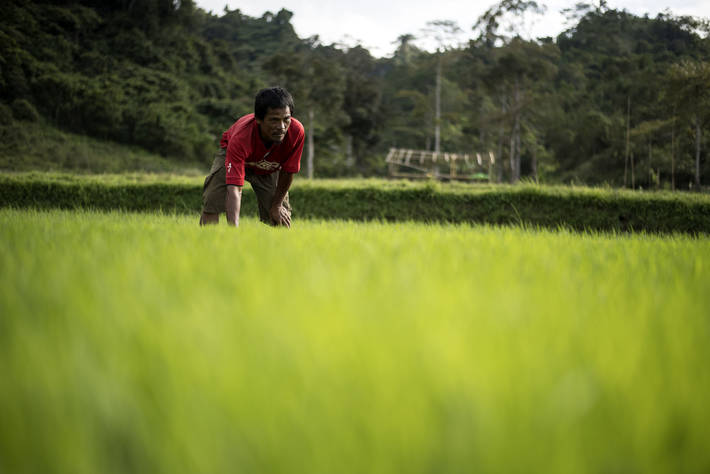Technology, automation, disruption. They're the words of the moment and they all seem to suggest one thing: The future jobs market is far from certain.
Estimates from the World Economic Forum predict that over the next four years, 75 million jobs will be displaced and 133 million new ones created globally as a result of technological developments.
One place that's set to feel that shift more than most is Southeast Asia.
To keep up with the pace of change, the region will try to transition from agricultural jobs to service-led roles in a few years — something that's taken most advanced economies decades to do.
That transition could result in the displacement of 28 million full-time equivalent jobs within the region's six leading economies in next decade, according to a new report from research firm Oxford Economics and U.S. tech company Cisco.

That number equates to roughly 10 percent of the total working population of those countries: Indonesia, Malaysia, the Philippines, Singapore, Thailand and Vietnam.
To be sure, the shift will lead to the emergence of new careers in growing industries. But it will also cause net job losses of 6.6 million as workers lack the necessary skills to move to different roles, the study found.
The challenge — and opportunity — then, will be to figure out which jobs are expected to hold weight in the future and the skills required to secure them. CNBC Make It spoke to Cisco's president for Southeast Asia, Naveen Menon, to find out.
Job Opportunities
The industries set to present the greatest opportunities over the coming years will be those that capitalize on the region's rising wealth and people's demand for products and experiences, the report found.
"As new technologies are applied, the productivity gains will lower production costs, which will see prices of goods and services come down, which in turn will raise spending power as disposable incomes rise. This will boost demand and create new jobs," explained Menon.
More specifically, those include the retail and wholesale, manufacturing, construction and transport industries. The region's smaller IT, finance and arts sectors will also see a boon in relative terms, the report noted.
Given that the majority of those industries are skilled and often customer-facing, Menon said that workers hoping to take advantage of emerging careers should look for opportunities to pick up new skills now. That process should include a combination of professional training and soft skills, such as communication and critical thinking, he noted.
Singapore, with its comparatively minuscule population, is expected to feel the greatest immediate impact of technological disruption. The city-state is forecast to see many as 21 percent of its full-time jobs displaced within the next decade.

That's because Singapore is already at the "frontier of technology progress" and businesses are therefore able to readily implement new innovations and overhaul processes, rather than play "technology catch-up," the report noted.
"Relative to the size of its total workforce, and despite its already highly-skilled worker profile, Singapore faces the greatest skills challenge, according to our model, because the majority of new jobs there will be created in highly-skilled professional and managerial roles," it said.
Future Outlook
The major shifts anticipated in the coming years create challenges for both businesses and employees. But while that scenario presents challenges, Menon also noted that there are reasons to be optimistic.
"The upshot of this change is that workers across ASEAN will be tasked with higher value and more rewarding work than they are today," said Menon.
That will have wider knock-on effects for Southeast Asia, which is home to some of the world's fastest-growing economies.
"This will help to sustain the long-term growth of the region," he added.
Source : cnbc.com


















